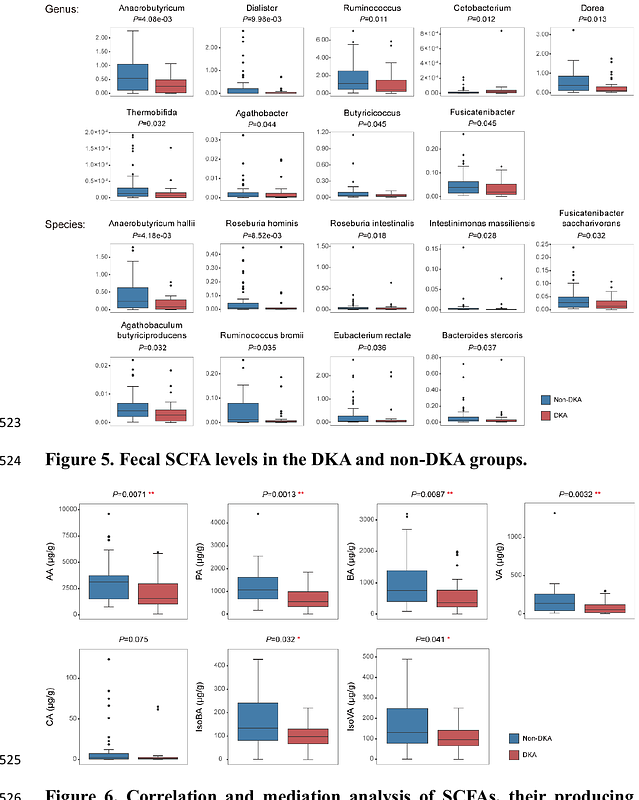Gut Microbiota Dysbiosis and Short-chain Fatty Acid alterations in Pediatric New-Onset Type 1 diabetes with Ketoacidosis

Gut Microbiota Dysbiosis and Short-chain Fatty Acid alterations in Pediatric New-Onset Type 1 diabetes with Ketoacidosis
Liu, Y.; Lin, H.; Zhu, M.; Chen, X.; Yu, Z.; Dong, G.; Ni, Y.; Fu, J.
AbstractObjective: Diabetic ketoacidosis (DKA) stands as the most common acute hyperglycaemic complication with a relatively high mortality rate among children diagnosed with type 1 diabetes (T1D). Previous studies have shed light on gut dysbiosis in newly-onset T1D children, but research targeting the gut microbiota and microbial metabolites in patients with DKA remains scarce. Methods: Shotgun metagenomic analysis was conducted on fecal samples from 96 newly diagnosed T1D children, including 32 patients who presented with DKA upon admission. Short-chain fatty acids (SCFAs) were quantified using gas chromatography/mass spectrometry (GC/MS). Comparative analyses were performed on the gut microbiome and SCFA levels between DKA and non-DKA subgroups. Results: Gut microbiota composition differed between DKA and non-DKA groups. While alpha-diversity remained consistent, beta-diversity showed marked differences between the two groups, and the phyla Firmicutes and Bacteroidetes exhibited predominance in the DKA group. DKA was associated with increased potential pathogens and a significant depletion of SCFA-producing genera (Anaerobutyricum, Dialister, Ruminococcus, Roseburia, Dorea, and Butyricicoccus), accompanied by reduced SCFA levels. Further correlation analysis revealed strong associations between SCFAs, SCFA-producing microbiota, and disease severity indicators. Propionic acid and butyric acid mediated the association between SCFA-producing bacteria and DKA. Conclusion: This study first reported reductions in SCFAs and SCFA-producing bacteria in the fecal samples of T1D children at DKA onset. Our findings highlight SCFAs and their producers as protective biomarkers of DKA and suggest that targeting gut microbiota and SCFA metabolism may offer a potential therapeutic strategy for DKA.